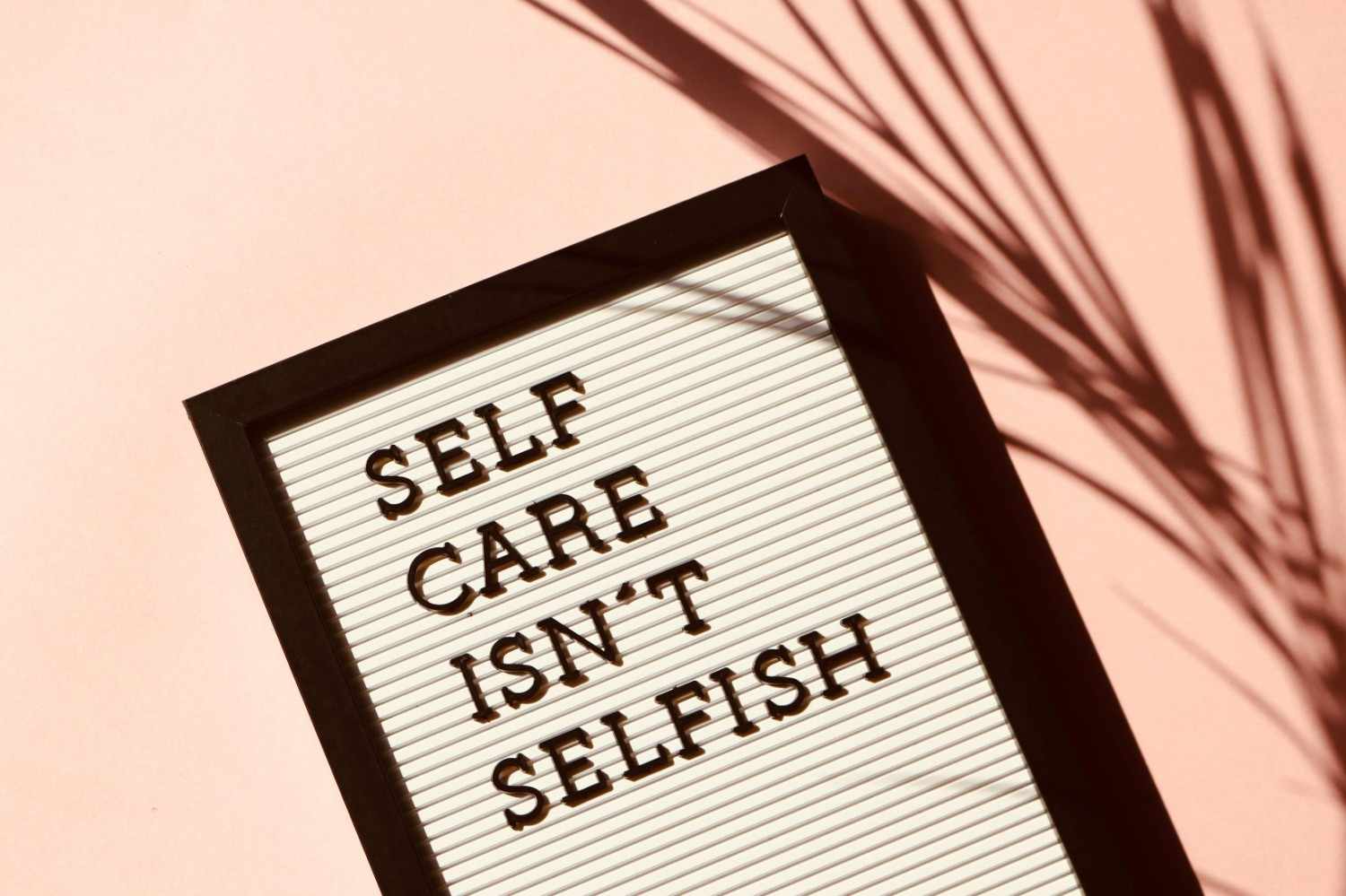In a world that constantly bombards us with images of flawless, curated perfection, the pressure to measure up can feel relentless. We are taught to hide our flaws, to fix our weaknesses, and to present an edited version of ourselves to the world. But the relentless pursuit of an impossible ideal is a recipe for anxiety and exhaustion. The true path to peace and authentic confidence is not found in becoming "perfect," but in the courageous and deeply healing act of becoming "whole." This is the journey of self-acceptance, a process of learning to embrace every part of yourself, the light and the shadow, with unwavering compassion.
Key Points
- Self,acceptance is not resignation or giving up; it is the "active and courageous practice" of embracing all parts of oneself, including flaws and vulnerabilities, without judgment (1).
- The modern pursuit of perfection, often fueled by social media, is a primary driver of anxiety, depression, and burnout. Self,acceptance is the direct antidote to this toxic cultural pressure (2).
- There is a crucial difference between "self,esteem," which is often conditional and based on external achievements, and "self,acceptance," which is an unconditional sense of worthiness that is stable and resilient (3).
- Psychological frameworks like Dr. Kristin Neff's "self,compassion" and Dr. Tara Brach's "radical acceptance" provide practical, evidence,based roadmaps for cultivating this skill (4, 5).
- The journey involves actionable steps like naming your inner critic, practicing mindfulness to observe thoughts without attachment, and celebrating the "good enough" to break the cycle of all,or,nothing thinking.
Introduction: The Courage to Be Whole
In a world that constantly bombards us with images of flawless, curated perfection, the pressure to measure up can feel relentless. From the filtered feeds of social media to the subtle and not,so,subtle messages of advertising, we are taught to hide our flaws, to fix our weaknesses, and to present an edited, idealized version of ourselves to the world. This relentless pursuit of an impossible ideal, however, is a recipe for chronic anxiety, self,criticism, and a pervasive feeling of not being "good enough." The very platforms that promise connection often amplify this pressure, a dynamic we explored in The Impact of Social Media on Relationships.
But what if the true path to peace, confidence, and authentic happiness was not found in erasing our imperfections, but in embracing them? What if the goal was not to become "perfect," but to become "whole?" This is the journey of self,acceptance. It is a quiet, internal revolution, a radical act of kindness in a world that profits from our self,doubt. This article, by psychologist Dr. Anya Sharma, is your guide to that journey. We will explore what self,acceptance truly means, why it is the essential foundation for genuine self,love, and the practical, science,backed steps you can take to cultivate a more compassionate and accepting relationship with the most important person in your life: yourself. All information is current as of September 14, 2025, at 10:49 AM GMT.
The Myth of Perfection: A Modern Epidemic
The first step in embracing imperfection is understanding the tyranny of its opposite: perfectionism. Perfectionism is not the healthy striving for excellence; it is the "belief that if we live perfect, look perfect, and act perfect, we can minimize or avoid the pain of blame, judgment, and shame." It is a shield, and a heavy one at that. It is a defense mechanism against our deepest fears of being seen as unworthy or unlovable.
This "culture of perfection" is amplified by the digital age. Social media platforms function as a global highlight reel, where the messy, mundane, and difficult parts of life are edited out. We are left comparing our behind,the,scenes reality with everyone else's curated public image. This constant "upward social comparison" is a direct pathway to feelings of inadequacy, envy, and depression.
The psychological cost is immense:
- Chronic Anxiety: Living with the constant fear of making a mistake or falling short creates a baseline of anxiety that permeates every aspect of life.
- Procrastination and Paralysis: The fear of not being able to do something perfectly can be so overwhelming that it prevents us from starting at all.
- Burnout: The endless striving for an unattainable standard is emotionally and physically exhausting, leading to burnout in our careers, relationships, and personal lives.
Self,acceptance is the act of laying down this heavy shield. It is the realization that our worth is not contingent on our performance, our appearance, or our flawlessness. It is inherent.
Self-Acceptance vs. Self-Esteem: A Crucial Distinction
For decades, the conversation around self,love has been dominated by the concept of "self,esteem." While important, self,esteem has a critical vulnerability: it is often conditional. Self,esteem is an "evaluation" of our own worth. It tends to rise and fall based on our successes and failures. We have high self,esteem when we get a promotion, receive praise, or achieve a goal. We have low self,esteem when we are rejected, make a mistake, or feel we have fallen short.
Self,acceptance, on the other hand, is "unconditional." It is not an evaluation, but an "acknowledgment" of what is. It is the ability to be with ourselves, just as we are, in any given moment, without needing to change anything. It is the bedrock upon which a more stable and resilient sense of self can be built.
- Self,esteem says, "I am worthy because I am good at this."
- Self,acceptance says, "I am worthy, period. And right now, I am struggling with this."
This distinction is life,changing. When our sense of worth is based on self,acceptance, we can navigate failure and criticism without it shattering our core identity. We can acknowledge our weaknesses without feeling defined by them. It is the foundation of true emotional resilience.
The Psychology of Acceptance: Tools for the Journey
The journey to self,acceptance is not a passive wish; it is an active practice. Fortunately, psychologists and contemplative leaders have developed powerful, evidence,based frameworks to guide us.
The Three Pillars of Self-Compassion
Dr. Kristin Neff, a pioneering researcher in this field, defines "self,compassion" as the act of extending compassion to oneself in instances of perceived inadequacy, failure, or general suffering. It has three core components:
- Self-Kindness vs. Self-Judgment: This is the practice of treating ourselves with the same warmth, gentleness, and understanding that we would offer to a dear friend who was struggling. Instead of a harsh, critical inner voice, we learn to cultivate a voice of comfort and support.
- Common Humanity vs. Isolation: This is the recognition that suffering and personal failure are part of the shared human experience. The moment we make a mistake, our tendency is to feel isolated, as if we are the only one who struggles this way. Common humanity reminds us that imperfection is what connects us to everyone else, rather than what separates us.
- Mindfulness vs. Over-Identification: Mindfulness is the practice of observing our thoughts and feelings as they are, without suppressing or exaggerating them. It allows us to hold our pain in a balanced awareness, so we are neither consumed by it nor avoiding it. It is the practice of being with our struggles without "becoming" our struggles. We touched on similar ideas in Mindfulness and Meditation in Recovery.
The Practice of Radical Acceptance
Psychologist and meditation teacher Dr. Tara Brach introduced the concept of "Radical Acceptance." This is the practice of clearly recognizing what we are feeling in the present moment and "being with it" just as it is, without trying to change it, fix it, or judge it. It is a profound "yes" to the reality of the present moment.
This does not mean approval. You do not have to "like" the fact that you feel anxious or that you made a mistake. Radical acceptance simply means acknowledging that it "is" happening. The paradox is that the moment we stop fighting with reality, we are freed up to respond to it with wisdom and compassion. The internal war ends, and a space for healing opens up.
A Practical Guide: How to Cultivate Self-Acceptance
Understanding these concepts is the first step; putting them into practice is the journey. Here are some actionable strategies to begin cultivating self,acceptance in your daily life.
- Name Your Inner Critic: That harsh, judgmental voice in your head is not "you." It is a conditioned pattern of thought, often internalized from childhood experiences or societal pressures. Give it a name, maybe "the Judge" or even a silly name like "Gremlin Gary." When you hear that voice, you can say, "Ah, the Judge is back. Thanks for your input, but I've got this." This simple act creates a crucial space of separation.
- Practice the Self-Compassion Break: When you are having a difficult moment, try this short exercise from Dr. Neff. First, acknowledge the feeling ("This is a moment of suffering"). Second, connect with common humanity ("Suffering is a part of life"). Third, offer yourself kindness ("May I be kind to myself"). You can even place a hand over your heart to add a comforting physical gesture.
- Embrace the "Good Enough" Principle: Perfectionism operates on an all,or,nothing basis. Self,acceptance thrives in the gray area of "good enough." Make a conscious effort to finish a task, send an email, or complete a project when it is good enough, rather than endlessly polishing it. Celebrate the act of completion, not the flawless outcome.
- Write a Letter of Forgiveness to Yourself: Think of something from your past that you still carry shame or guilt about. Write a letter to yourself from the perspective of an unconditionally loving friend. Acknowledge the pain, validate the feelings, and offer the same compassion and forgiveness you would to someone you care about deeply.
- Curate Your Information Diet: Just as you choose the food you eat, you can choose the information you consume. Unfollow social media accounts that make you feel inadequate. Follow those that promote authenticity, diversity, and realness. Create a digital environment that supports your self,acceptance, rather than one that undermines it.
Comparison: The Perfectionist Mindset vs. The Self-Accepting Mindset
| Aspect | The Perfectionist Mindset | The Self-Accepting Mindset |
|---|---|---|
| Response to Failure | Sees failure as a catastrophe, a reflection of personal inadequacy, and a source of deep shame. | Sees failure as a learning opportunity, a normal part of the human experience, and a chance to practice self,compassion. |
| Source of Worth | External and conditional, based on achievements, praise, and looking perfect. | Internal and unconditional, based on inherent worthiness, regardless of external outcomes. |
| Inner Dialogue | Harsh, critical, and demanding. A relentless inner critic is in charge. | Kind, supportive, and understanding. An inner compassionate friend is cultivated. |
| Approach to Goals | Driven by a fear of not being good enough. The focus is on avoiding failure. | Driven by a desire for growth and learning. The focus is on the journey and the effort. |
| In Relationships | Hides vulnerabilities for fear of judgment, creating emotional distance. | Shares vulnerabilities with trusted others, fostering deeper intimacy and connection. This aligns with the principles in Building Trust. |
Conclusion: The Freedom of Being Whole
The journey to self,acceptance is perhaps the most important one we will ever take. It is a quiet, steady, and sometimes difficult path that leads away from the noisy demands of perfectionism and toward the profound peace of authenticity. It is not a one,time destination but a lifelong practice of returning, again and again, to a place of kindness and compassion for ourselves.
Embracing your imperfections does not mean you stop growing or striving. On the contrary, it provides the secure emotional foundation from which "true growth" can happen, growth that is motivated by love for yourself, not by fear of not being enough. It is the key that unlocks resilience, deepens our connection to others, and ultimately, gives us the freedom to live as our true, unedited, and beautifully imperfect selves.
References
- Psychology Today - The Radical Power of Self-Acceptance
- Harvard Business Review - The Dangerous Downsides of Perfectionism
- PositivePsychology.com - What Is Self-Acceptance? 25 Exercises + Quotes
- Dr. Kristin Neff - Self-Compassion
- Dr. Tara Brach - Radical Acceptance








